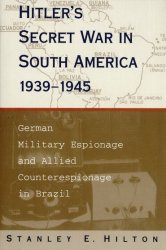By 1981, the Soviet Union had many enemies: in China, where the twice-purged Deng Xiaoping had succeeded Mao Zedong and shown that a singleparty Marxist state could indeed reform its economy - but only by moving toward capitalism; in Czechoslovakia, where the playwright Vaclav Havel and the movement he founded, Charter 77, were pressing Soviet leaders to honor their Helsinki human rights commitments; in the Vatican, where a papal conclave surprised the world - and especially the Kremlin - by electing a Polish pope determined to challenge Moscow’s influence in Eastern Europe; in Britain, where Margaret Thatcher had become prime minister by attacking planned economies; in Poland, where a persistent Gdansk shipyard worker, Lech Wa! e;sa, had forced the government in Warsaw to recognize Solidarity, the first independent trade union within the Soviet bloc; and in the United States, where Ronald Reagan had become president after decisively defeating Carter’s bid for reelection - with an explicit promise to kill detente.
The simultaneous appearance of so many adversaries suggests several things. One is a major failure of strategy in Moscow, since an obvious standard for success in strategy is to decrease, not increase, the number of opponents one faces. Another is that the shaking up of the Cold War stalemate - the destabilizations of the 1970s and the misjudgment of structures into which these lured the USSR - destroyed the sense of inevitability that had come to surround bipolarity: they opened minds to the possibility that a superpower rivalry was not the only conceivable way to organize the world. Still another is that detente, which had been meant to institutionalize such a system, instead wound up de-institutionalizing it.
For it now had become apparent that detente could never end the Cold War: it could at best only make the struggle safer and more predictable. That was progress, but it still meant that half the world would live under governments it had not chosen. Detente’s gravediggers - Havel, John Paul II, Thatcher, Walesa, Reagan - were determined to change that situation. Deng was content with it but sought something else equally radical: to make the world’s most populous country a prosperous country. There was no common strategy in all of this - the anti-Soviet movement was too diverse and disconnected - but there was a convergence of strategies with a common objective. That was to move beyond the Cold War.
No one was sure, though, how this might happen. Many people still feared a nuclear war, not least the dying Brezhnev and his equally feeble successors lurii Andropov and Konstantin Chernenko. Others hoped for a negotiated settlement, but the Reagan administration at first seemed uninterested, and even if it had been interested, the old men in the Kremlin would hardly have been capable of negotiating. A few prophets predicted the collapse of the Soviet Union but found it difficult to specify how or when that might occur. A few officials in Washington and London foresaw the possibility that a Soviet leader might emerge, as Kennan decades before had foreseen, who would sense the "internal contradictions" of his own system and seek to change it. But it was not at all evident, even to Kennan, how the Soviet system of the early 1980s, which had never been more set in its ways, could ever produce such a visionary.7
In the end, as often happens in history, all expectations were confounded. The nuclear danger was greater than at any point since the Cuban missile crisis, but Reagan turned out to be a nuclear abolitionist - the only one ever to occupy the White House - and upon recognizing the risks quickly moved to diminish them. The ossified Soviet system did produce a negotiating partner in Mikhail Gorbachev, who succeeded Chernenko in 1985, but it also produced much more: Gorbachev turned out to be the Soviet leader Kennan had hoped for. To everyone’s surprise including probably his own, Gorbachev abandoned the Soviet Union’s revolutionary-imperial aspirations and set out to make his state a normal member of an international system in which the Cold War itself would cease to be "normal.”
But Gorbachev too misjudged a structure, which was that of the Soviet Union itself. It turned out that to give up its ideology, to relinquish its sphere of influence, and to acknowledge the right of non-Russian nationalities to secede - without at the same time transforming that state into a multiparty democracy and a market economy - was to hollow it out from within: Gorbachev left it no reason to exist. He could never bring himself to acknowledge that reality, but his successor, Boris Yeltsin, saw it clearly. For just as the visionaries of the 1980s understood that detente, having perpetuated the Cold War, had to be eliminated, so this visionary of the early 1990s concluded that the same was now true of the Soviet Union itself.




 World History
World History









